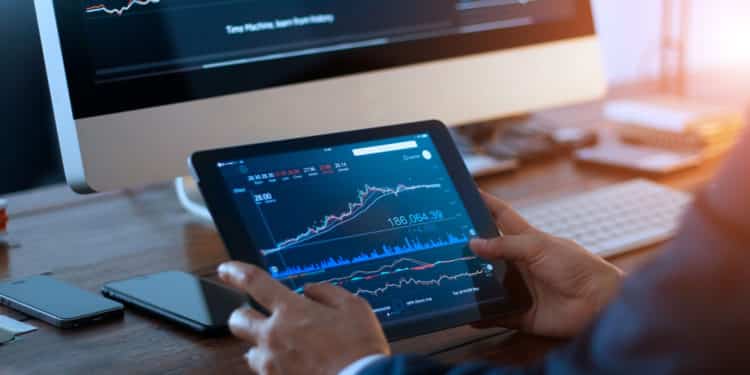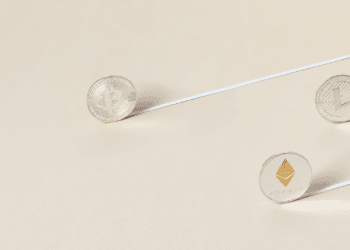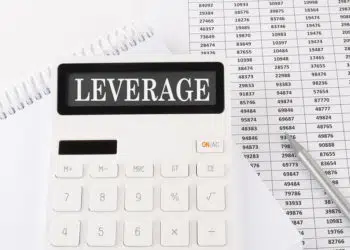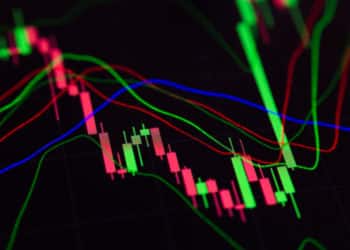A common challenge among most retail forex traders is the starting capital that is needed. In the past, many brokers had a preference for large traders with thousands or even millions of dollars. Today, as trading has gone global, many brokers are offering accounts with a minimum deposit of as little as $100.
In this article, we will look at the minimum amount of money you need to start day trading. We will then conclude with some of the dos and don’ts when trading with a small forex account.
Minimum account when trading forex
It is possible to trade forex with as little as $50. However, in my experience, I have found that many people who start trading with micro accounts tend to lose money in the long term. The reason behind this is simple.
For example, assume that you have an account with $100. In this case, when you lose 50% of these funds, you will have about $50 with you. Now, recovering the 50%, you have lost in this case will be a difficult mountain to climb.
On the other hand, if you have $10,000 and you lose 50$, the loss will account for only 0.5% of the balance, which is completely normal and easy to recover. With sufficient funding, you can generate meaningful returns while still being able to make a comeback in the long term when drawdown comes.
Leverage
Leverage is an important concept when you are thinking about forex trading. For starters, leverage refers to money that a broker extends to you to maximize your profits. For example, if you have $500 and you decide to use a 10x leverage, it means that you can open trades as if you have about $5,000.
There are several benefits to using leverage. For one, when things are going on well, leverage can lead to substantial profits. This is the main reason why it is always recommended for people to trade forex with some leverage.
Still, we recommend that you use leverage sparingly. While leverage is a good thing, it can also lead to substantial losses in the future. The situation is even worse when you have a small account.
Leverage is so risky that regulators have stepped in to protect traders. In Europe and Australia, brokers can only offer a maximum leverage of 1:30.
Outside of these places, some brokers offer leverage of up to 2,000:1. As a trader with a small account, you should avoid using such oversize trades.
Trading journal
This concept applies to traders with small accounts and even professional ones with big accounts. You should always have some sort of a trading journal.
A trading journal is a document where you put down all aspects of your trading. In a journal, you can write down your entry and exit prices. You can also write down your ideal stop-loss and take-profit levels.
Most importantly, you can put down your profit and loss and the reason why you entered the trade in the first place.
A journal will help you in a number of ways. First, it will help to instill discipline in your trading. That’s because you will always need to take a pause before you enter a trade. This pause can help ensure that you are sure about the trade.
Second, it will help you learn from your past mistakes. It is through learning these mistakes that you will grow to become a better forex trader.
Third, the journal will help you grow in the long term. In my decade of trading, I am amazed at how my journal has played to make me a better trader. Therefore, never trade without journalizing your trades.
Stop-loss and take-profit
Another key thing that will help you grow your forex account is a stop-loss and a take-profit. A stop-loss is a tool that automatically stops your trade when it moves to a certain level. For example, if you have a $50 account, you can place a stop-loss to ensure that the maximum loss you can make is $10. Therefore, with this stop-loss, you are sure that you won’t lose more money than that.
A take-profit, on the other hand, is a tool that automatically stops a trade when its profit reaches a certain level. This tool is most helpful when you open a trade and leave it to run for some time. In this case, you are sure that your profit level is locked.
Whether you have a small or big account, ensure that you always have a stop-loss and a take-profit whenever you open a trade.
Overtrading
There are different types of forex traders. There are scalpers, who make money by opening many trades per day and making small profits. On the other hand, there are swing traders who make a living by opening trades and leaving them open for a while.
A common mistake that many traders make is that they overtrade. The reality is that any trade that you open in forex is always risky. This means that it constantly exposes you to some risks. Therefore, the more trades you open, the more you expose yourself to risks.
Therefore, we recommend that you avoid the temptation of overtrading because of the risks it poses. Indeed, when I was trading in a small account, I lost a lot of money by opening tens of trades every day.
Summary
Forex trading with a small account is not easy. Indeed, some of our recommendations in this article mean that you won’t make a lot of money. For example, using small leverage means that your profitability will be affected. However, these tips will help to ensure that you make consistent returns in the long term. They will also help you avoid blowing up your account.







